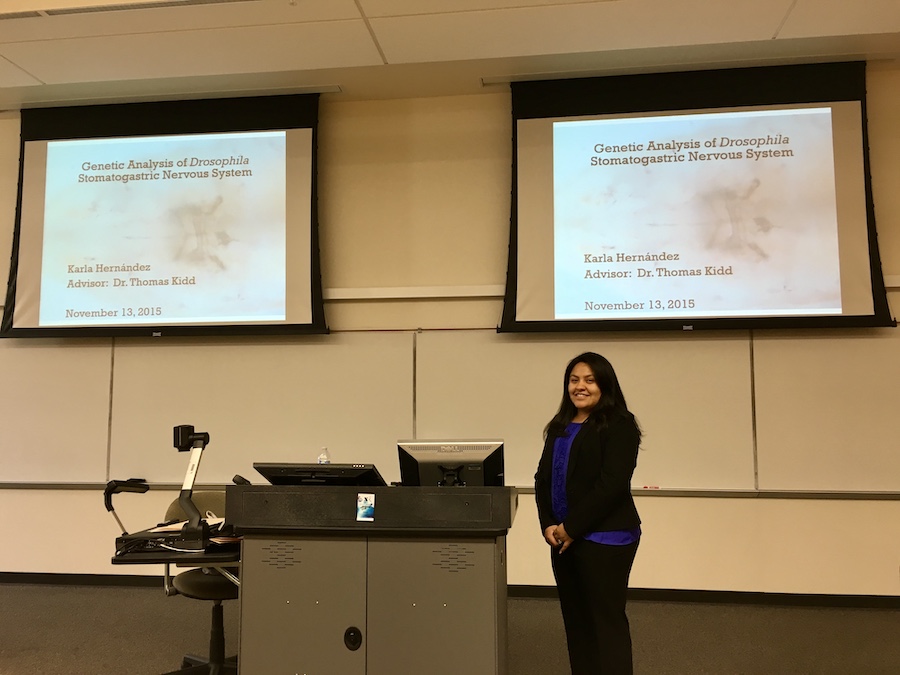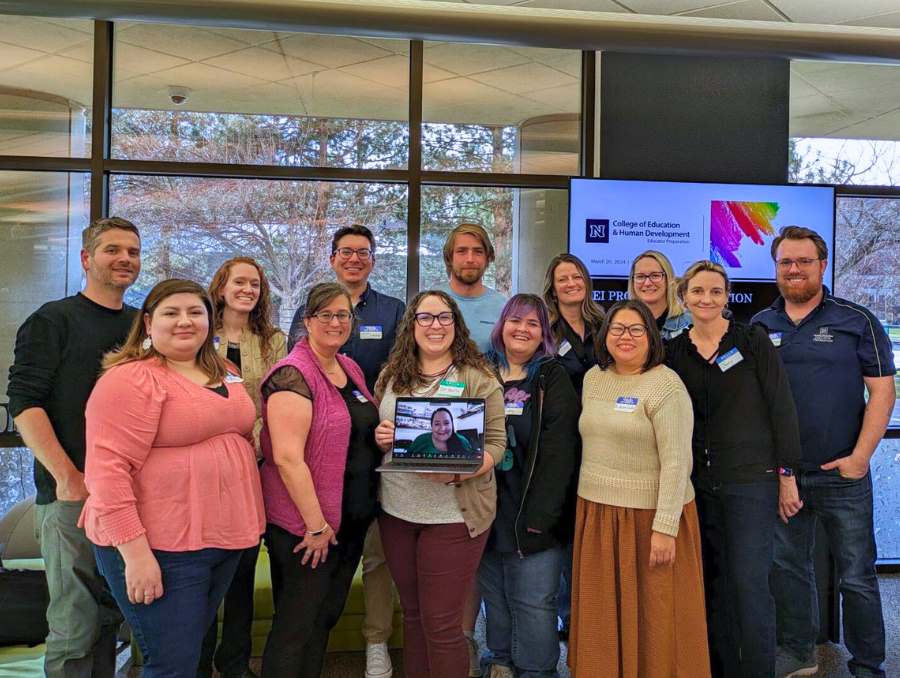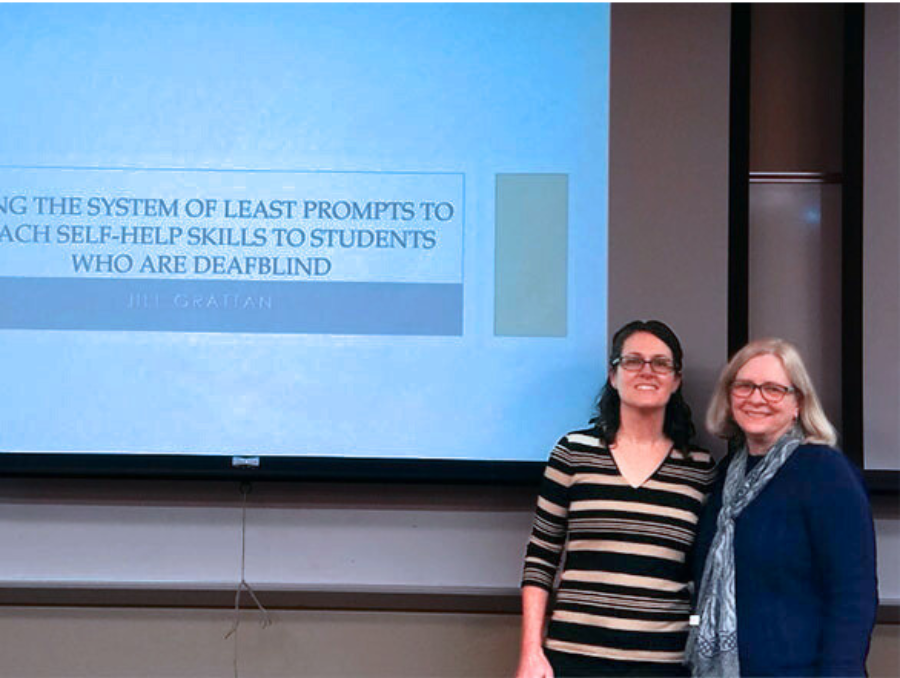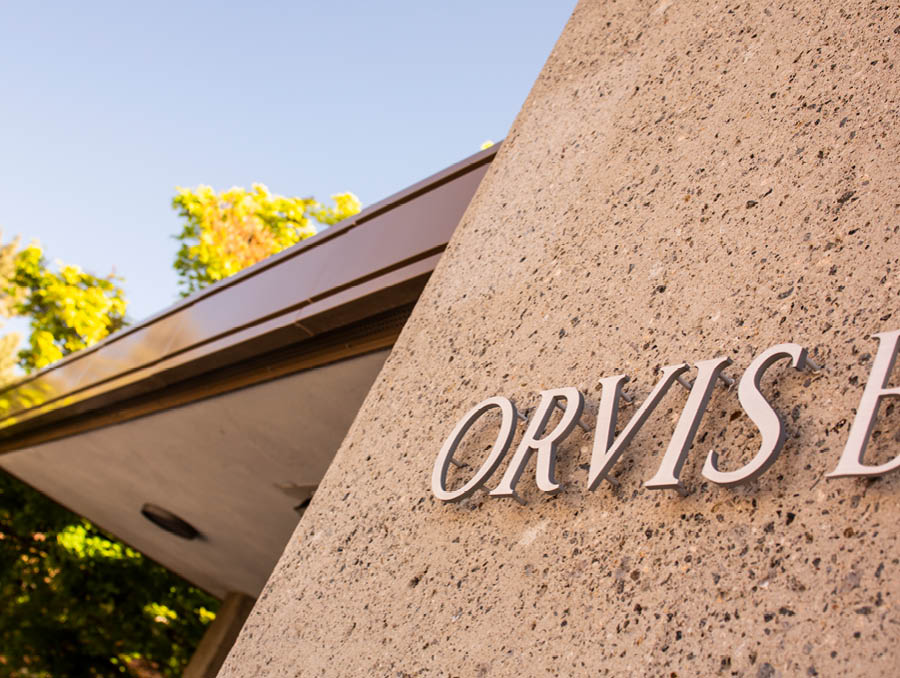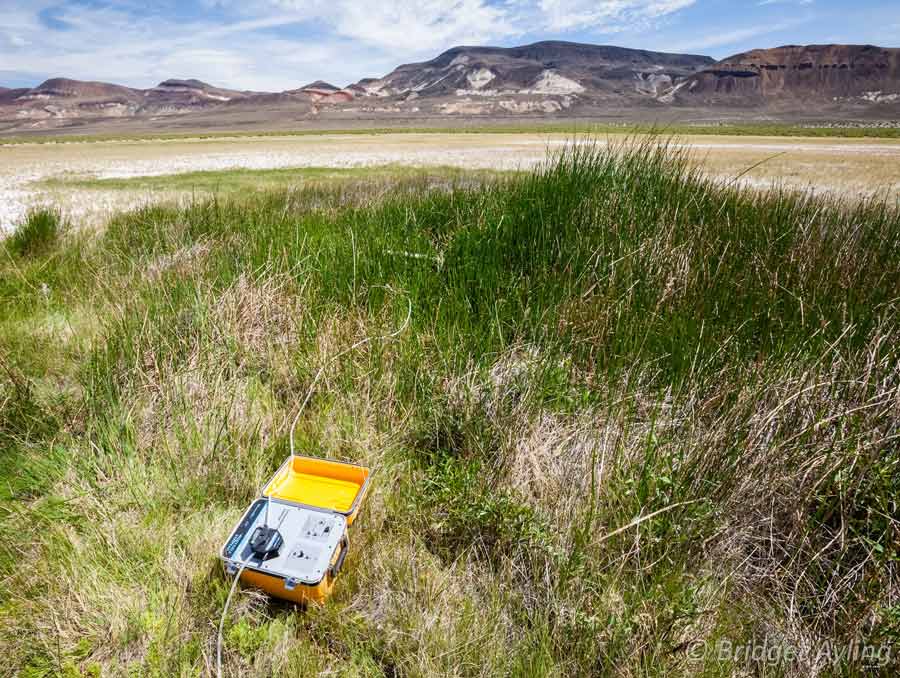Envirohaven, the University of Nevada, Reno student entrepreneurial team that took first place in the undergraduate category and garnered the Lt. Governor's Award at The Donald W. Reynolds Governor's Cup competition in April, have put their $37,000 in winnings to good use. Last Wednesday, they unveiled a prototype of their 1,400-square-foot, self-contained, energy-efficient home package at an open house sponsored by Nevada's Center for Entrepreneurship and Technology, which also presents the annual Governor's Cup competition in Nevada.
The open house, held at Envirohaven's facility on Valley Road in Reno, was packed. According to Vicki Bischoff, president of the now-incorporated company, the team was overwhelmed with the response, with the event drawing more than 100 people, including Reno Mayor Bob Cashell.
"We had to start telling people who were RSVP'ing that we were sold out for the event," she said. "We could not believe the response and support. We're going to try to hold another event soon."
Bischoff said the team used the competition winnings to purchase the materials for the framed prototype, to incorporate and to do a little marketing, including building an Envirohaven website and getting an artist's rendition of what the final product will look like. Greg, Vicki's husband and chief operations officer of the company, and Envirohaven teammate Adair Melendez spent the summer building the frame of the faceted structure. Teammate Clint Borchard is now the company's vice president of sales and marketing.
Vicki and Borchard are now both seniors at the University. Vicki is majoring in communications and minoring in entrepreneurship, and Borchard is majoring in management and minoring in entrepreneurship. The two met and teamed up while taking College of Business classes together. Greg had been working on the Envirohaven concept for several years, but Vicki said it was her experience at the University that brought the idea into fruition.
"We wouldn't be here if it wasn't for the University and its Entrepreneurship Program," she said. "This program changed my whole life. It gave us the resources we needed to make this a success - information and people resources. They're all here at UNR. The Entrepreneurship Program gives people the blueprint."
At the open house, Greg explained the framing concept, as well as the energy-efficient components of the patent-pending design.
"We use two different sizes of triangles that make it simple for production and assembly," he said, pointing to the several interlocking triangles that make up the entire structure.
Tours of the structure included the great room, kitchen, bathroom, bedroom and office or second bedroom on the first floor, along with a utility/laundry room in the center, which also serves as its energy hub, containing the various energy-efficiency components and systems. The master bedroom and bathroom are upstairs.
Energy efficiency is achieved by using radiant heating as well as Direct Current (DC), photovoltaic and solar thermal energy for electricity and heating. Energy needs are reduced by using highly effective, proprietary insulated, thick walls and roofs, and various other energy-efficient construction techniques.
The open house last week drew broad interest from the local community, with Vicki explaining that the Envirohaven homes are ideal for northern Nevada, where industries such as mining require workforce housing in remote areas. The team's research indicates that there is also a demand for workforce housing in remote locations in North Dakota, Oklahoma, Pennsylvania and Alaska. Vicki said the low-cost, prepackaged, self-contained homes can be assembled on site in less than three weeks, also making them a possible alternative for disaster-relief work. In addition, she said there is interest from people who just want an energy-efficient, affordable alternative for personal housing where public utilities may or may not be available.
The estimated total retail cost of a completely finished home is $150,000 to $180,000, depending on what residents choose for fixtures, flooring, cabinetry and other amenities. The company is now looking for someone who wants to purchase an Envirohaven home at the company's cost in exchange for allowing the company to use it for a working prototype from which they can collect hard data on energy use, costs and operations.
"We need to collect empirical data once it's all powered up," she said.
The team may also enter more student entrepreneurship competitions this year. In addition to competing in the Governor's Cup competition, last spring Envirohaven also competed in and was named a finalist in the University's first-ever Sontag Entrepreneurship Award Competition, which awards a winner-take-all grand prize of $50,000. The team also advanced to the third and final round in the First Look West (FLoW) Competition, one of six regional business plan competitions for clean energy sponsored by a $2 million Department of Energy program.
"The process you go through each time you enter one of these competitions is such an important learning experience," Vicki said, adding that entering this year's Sontag Competition, which was just announced a couple of weeks ago, is a possibility. "We have been encouraged to enter again. We have just been so busy and overwhelmed, still being students and getting the company up and running, we haven't had time to discuss it yet."




